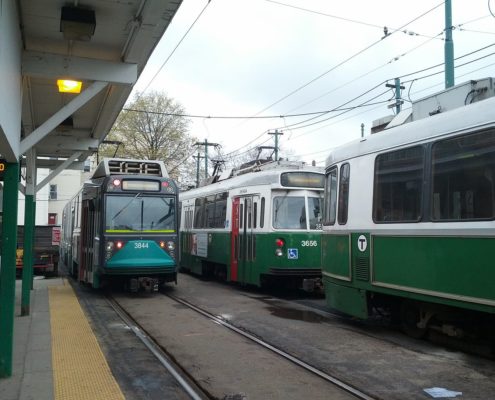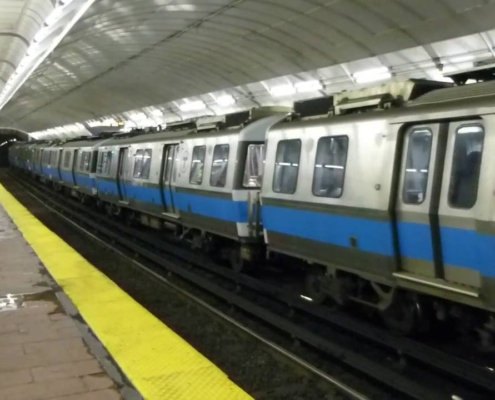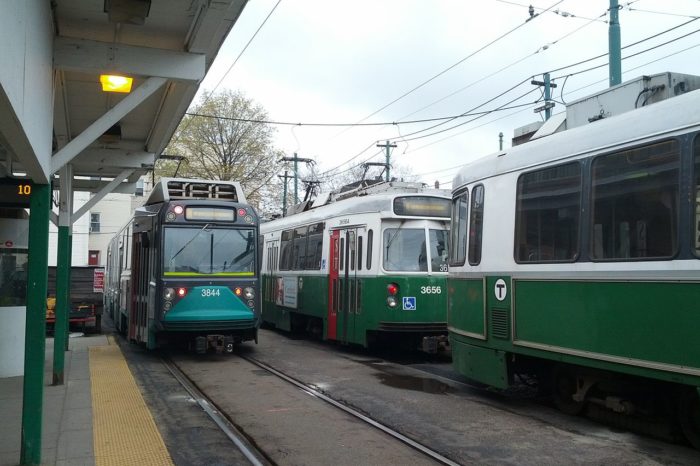A Control Board Equipped for the Next Phase of MBTA Reform
/in Featured, Press Releases: MBTA, Press Releases: Transportation /by Editorial StaffIn a new policy brief out today, Pioneer Institute Executive Director Jim Stergios calls on the Massachusetts Legislature to extend the life of the MBTA’s Fiscal and Management Control Board beyond the current fiscal year ending on June 30, and adjust it to address the agency’s new challenges.
Doing that successfully will require that the legislature continue to prioritize transit expertise over politics and focus on individuals with backgrounds in capital delivery, project management, operations, maintenance, transportation technology, and performance measurement. Stergios also recommends a mechanism to ensure leverage and accountability, such as an independent audit office that reports to the FMCB. Read the full report.
About the Author
Jim Stergios is Executive Director of Pioneer Institute. Prior to joining Pioneer, Jim was Chief of Staff and Undersecretary for Policy in the Commonwealth’s Executive Office of Environmental Affairs, where he drove efforts on water policy, regulatory and permit reform, and urban revitalization. Jim holds a doctoral degree in Political Science from Boston University.
About Pioneer
Pioneer Institute is an independent, non-partisan, privately funded research organization that seeks to improve the quality of life in Massachusetts through civic discourse and intellectually rigorous, data-driven public policy solutions based on free market principles, individual liberty and responsibility, and the ideal of effective, limited and accountable government.
Receive Our Updates!
Related Posts

We Have a Long Way to Go for Massachusetts Residents to Have the Government Transparency We Deserve

Study Finds Pension Obligation Bonds Could Worsen T Retirement Fund’s Financial Woes

Study Documents The Design Challenges, Contracting Issues, And Delays Facing New MBTA Fare Collection System

Study Finds Bus Rapid Transit Can Offer Cost-Effective Benefits

Study Raises Concern That Annual T Fare Evasion Costs Could Rise By More Than $30 Million Under AFC 2.0

Pioneer Applauds MassDOT for Allston Project All At-Grade Plan

Open Letter: Extend the Term of the MBTA’s Fiscal and Management Control Board

Pioneer Institute Statement on MBTA Service Cuts

COVID-19 Silver Lining: MBTA Takes Advantage of Ridership Lull to Accelerate $8.5 Billion Modernization Program

Survey Suggests Demand for Telecommuting After COVID-19 Crisis

Study Highlights Transit Agency Best Practices in Response to COVID-19

A Control Board Equipped for the Next Phase of MBTA Reform

Pioneer Urges MassDOT to Reconsider At-Grade Throat Option for I-90 Allston Multimodal Project

Press Release: Pioneer Releases First in Series of Videos Promoting Commuter Benefits Program

Study Finds Revived Merit Rating Board Taking Steps to Carry Out Statutorily Mandated Duties

Study Proposes “Marshall Plan” for Attracting and Retaining Talent Needed to Modernize the MBTA

Pioneer Institute Announces Winner of 29th Annual Better Government Competition




